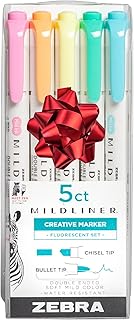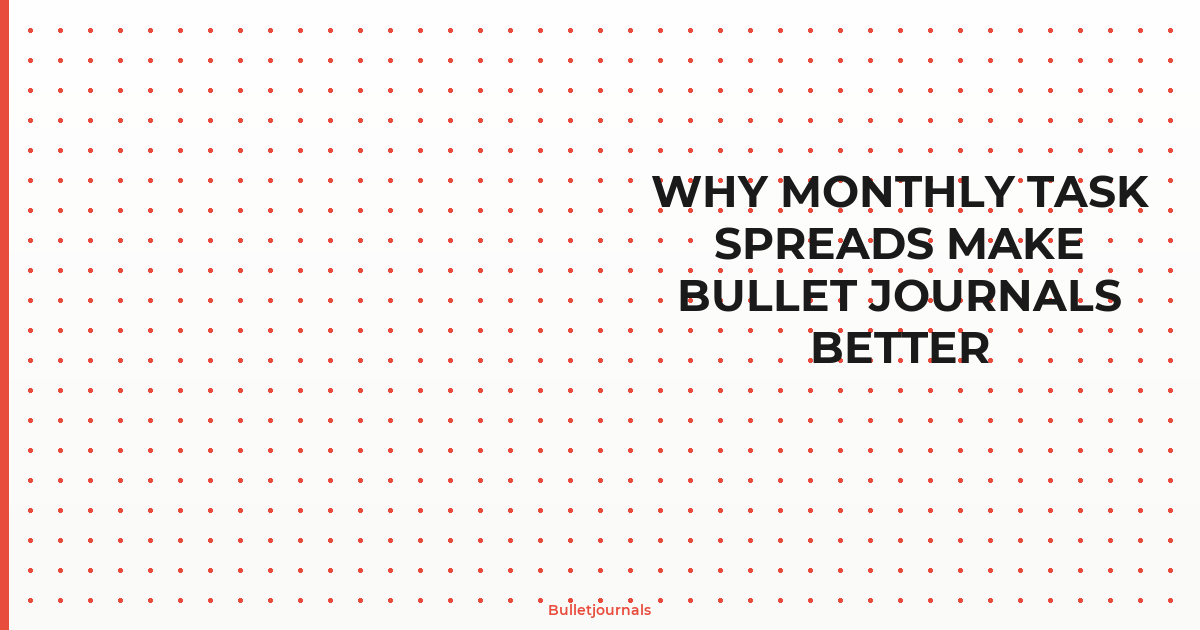Digital health tracking systems generate structured, longitudinal data that alters your medication adherence and symptom monitoring into actionable clinical insights. You'll want apps with HIPAA-compliant security (AES-256 encryption), FHIR-compatible data export, wearable integration, and proven symptom libraries. Set daily reminder alarms linked to existing routines like meals to maintain consistent tracking habits. The most effective platforms enable bidirectional communication with your healthcare team while providing real-time analytics that identify treatment correlations and adverse reactions. Understanding how to refine these tools through strategic tryation will improve your therapeutic outcomes greatly.
Key Takeaways
- Digital health tracking systems generate structured data that enables better medication adherence monitoring, symptom pattern recognition, and treatment response evaluation.
- Essential app features include secure data export, healthcare provider integration, proven symptom libraries, and HIPAA-compliant encryption standards.
- Maintain consistent tracking by setting daily reminder alarms, using minimal-entry interfaces, and trying staggered notifications to prevent alert fatigue.
- Wearable device integration enables continuous physiological monitoring, automated reminders, and real-time symptom detection for comprehensive health management.
- Prioritize apps with AES-256 encryption, clear privacy policies, secure provider access, and user-controlled data sharing to protect health information.
Key Benefits of Digital Health Tracking Systems

Digital health tracking systems change patient care by generating structured, longitudinal data that clinicians can't easily obtain through episodic visits alone.
You'll gain unprecedented visibility into medication adherence patterns, symptom trajectories, and treatment responses that inform proven adjustments to your care plan.
These systems enable health optimization through real-time analytics that identify correlations between interventions and outcomes.
Real-time analytics transform raw health data into actionable insights, revealing cause-and-effect relationships that drive measurable improvements in treatment outcomes.
You're equipped to recognize adverse reactions earlier, adjust dosing schedules based on symptom patterns, and communicate precise data to your healthcare team rather than relying on recall.
Digital wellness platforms integrate multiple data streams—medications, symptoms, vitals, and lifestyle factors—creating thorough profiles that support personalized medicine approaches.
You'll reduce appointment time spent reconstructing timelines and instead focus on strategic treatment decisions.
The quantified self-management approach changes passive care receipt into active health partnership, where your documented experiences become actionable intelligence driving therapeutic efficacy and safety monitoring.
Essential Features to Look for in Tracking Apps
Integration capabilities with healthcare providers' systems enable bidirectional communication, allowing real-time adjustments based on user feedback.
Select platforms offering secure data export formats (CSV, FHIR-compliant APIs) and compatibility with wearable devices for automated physiological monitoring.
proven symptom libraries with validated assessment scales guarantee clinical relevance while customization options accommodate condition-specific tracking requirements.
Top-Rated Medication Reminder Applications

When evaluating these platforms, prioritize interoperability with your existing health systems and data export capabilities that guarantee you maintain ownership of your health information.
Comprehensive Symptom Monitoring Platforms
Beyond tracking medication schedules, you'll need strong platforms that document your symptom patterns, triggers, and disease progression with clinical accuracy. Extensive monitoring systems convert subjective experiences into quantifiable data, enabling you to identify symptom trends and communicate effectively with healthcare providers about chronic conditions.
Advanced platforms integrate multiple data streams—pain intensity scales, mood assessments, physical function metrics, and environmental factors—creating longitudinal records that reveal correlations you'd otherwise miss. These systems employ standardized instruments validated through clinical research, ensuring your self-reported data maintains diagnostic relevance.
| Platform Feature | Clinical Benefit | Data Output |
|---|---|---|
| Multi-symptom tracking | Pattern recognition across systems | Exportable reports for providers |
| Trigger identification | Proactive management strategies | Correlation matrices |
| Temporal analysis | Disease trajectory monitoring | Graphical trend visualization |
You'll gain predictive insights that shift your approach from reactive symptom management to anticipatory intervention, fundamentally enhancing outcomes for chronic conditions requiring continuous monitoring.
How to Maintain Consistent Tracking Habits
Consistent tracking requires deliberate habit formation rather than relying on motivation alone.
Setting daily reminder alarms at strategic times—such as with meals or bedtime—creates automatic cues that trigger tracking behavior and greatly improve adherence rates.
Selecting user-friendly apps with minimal data entry requirements reduces friction in the tracking process, making it more likely you'll maintain the habit long-term.
Set Daily Reminder Alarms
Research demonstrates that automated reminders increase medication adherence rates by 25-40% compared to relying on memory alone.
You'll enhance tracking consistency by trying strategic alarm customization tailored to your specific medication schedule and symptom monitoring needs. Modern tracking apps enable precise reminder frequency adjustments that align with your circadian rhythms and daily routines.
Configure your reminder system using these proven approaches:
- Stagger multiple alarms across your day to capture time-sensitive medications and symptom variations without creating alert fatigue.
- Link reminders to existing habits like meals or bedtime to use behavioral anchoring techniques.
- Enable escalating notifications that increase in intensity if you don't respond within a predetermined timeframe.
You'll find that personalized reminder protocols greatly reduce missed doses while maintaining your autonomy in managing health data collection.
Choose User-Friendly Apps
While sophisticated features might seem appealing, you'll maintain tracking consistency only when your chosen app's interface aligns with your cognitive load capacity and technical comfort level. Prioritize app usability through systematic evaluation of navigation patterns, data entry efficiency, and visual clarity. Research demonstrates that apps requiring fewer than three taps to log entries achieve 67% higher adherence rates.
| Usability Factor | Assessment Method | Target Benchmark |
|---|---|---|
| Entry Speed | Timed logging test | <30 seconds/entry |
| Navigation Depth | Tap count analysis | ≤3 taps to core functions |
| Visual Hierarchy | Cognitive load assessment | Single-glance data recognition |
| Error Recovery | User feedback analysis | <2 steps to correct mistakes |
| Customization | Feature adaptation testing | Personalized workflows available |
Analyze user feedback ratings specifically addressing interface satisfaction rather than feature quantity.
Sharing Health Data With Medical Professionals
Effective data sharing includes:
- Export formatted reports showing medication adherence rates, symptom severity trends, and trigger correlations that physicians can review during appointments.
- Grant secure access to healthcare providers through HIPAA-compliant platforms that enable real-time monitoring between visits.
- Prepare contextual summaries highlighting specific concerns, unusual patterns, or treatment questions derived from your tracking data.
You'll enable clinicians with objective evidence that reveals treatment efficacy, identifies adverse reactions faster, and supports personalized care adjustments based on your unique response patterns rather than generalized protocols.
Privacy and Security Considerations for Health Apps

When you store sensitive health information in medication and symptom tracking apps, you're trusting them to protect your data from unauthorized access and breaches.
Strong health apps employ AES-256 encryption standards to secure your medical records both in transit and at rest on servers.
If you're in the United States, you should verify whether your chosen app complies with HIPAA regulations, which mandate specific safeguards for protecting your personal health information.
Data Encryption Standards
Because health apps store your most sensitive medical information—from prescription details to symptom patterns—they must employ strong encryption standards to prevent unauthorized access.
Leading medication trackers try AES-256 encryption protocols for data at rest and TLS 1.3 for transmission, ensuring your information remains protected throughout its lifecycle.
When evaluating apps, you'll want to verify they incorporate:
- End-to-end encryption that prevents even the app developer from accessing your unencrypted health data
- Secure storage mechanisms using hardware-backed keystores on your device to protect encryption keys
- Zero-knowledge architecture where your data is encrypted before leaving your device, maintaining complete privacy
These technical safeguards represent the current benchmark in health data protection, giving you confidence that your medical information stays confidential while enabling the groundbreaking features you need.
HIPAA Compliance Requirements
Strong encryption forms the technical foundation, but medication tracker apps operating in the United States must also navigate the complex regulatory framework established by the Health Insurance Portability and Accountability Act (HIPAA). You'll need to verify your chosen app demonstrates compliance with HIPAA regulations through proper safeguards and documentation.
| HIPAA Requirement | tryation |
|---|---|
| Patient consent | Explicit authorization for data collection and sharing |
| Access controls | Multi-factor authentication and role-based permissions |
| Audit trails | Extensive logging of all data access events |
| Business associate agreements | Formal contracts with third-party service providers |
| Breach notification | Mandatory reporting protocols within 60 days |
Apps handling protected health information must demonstrate these security measures. Review privacy policies carefully to verify compliance documentation and patient consent mechanisms before entrusting your health data.
Integrating Trackers With Wearable Devices and Smart Technology
Modern wearable devices and smart technology have changed medication and symptom tracking from manual documentation into automated, real-time health monitoring.
You'll find that wearable integration enables continuous data collection through smartwatches, fitness trackers, and biosensors that monitor essential signs, activity levels, and physiological responses without conscious effort.
Smart technology platforms synchronize this data with your medication schedules, creating extensive health profiles that reveal correlations between treatments and symptoms.
Smart platforms transform raw health data into actionable insights by connecting your medication timing with real-time physiological responses and symptom patterns.
You're equipped to identify patterns that might otherwise remain hidden—such as how specific medications affect your heart rate, sleep quality, or physical activity.
Key advantages of integrated tracking systems include:
- Automated medication reminders that sync with your daily routines and physiological states
- Real-time symptom detection through continuous monitoring of heart rate variability, body temperature, and movement patterns
- Data-driven insights that enable you and your healthcare providers to make proven treatment adjustments
This integration alters passive tracking into proactive health management, optimizing therapeutic outcomes through precision monitoring.
Frequently Asked Questions
Can Medication Trackers Help Reduce Healthcare Costs for Chronic Condition Management?
Yes, medication trackers greatly reduce your healthcare expenses through improved chronic care management.
You'll achieve cost savings by preventing medication errors, reducing emergency visits, and avoiding disease complications. These digital tools improve your adherence rates by 20-30%, minimizing expensive hospitalizations and optimizing therapeutic outcomes.
You're equipping yourself with real-time data analytics that enable proactive interventions, ultimately decreasing your overall treatment burden.
Smart tracking alters chronic care from reactive to preventive, delivering measurable financial benefits while improving your health trajectory.
Are Symptom Trackers Legally Admissible as Evidence in Disability Claims?
Symptom trackers exist in a legal gray area—while they're modern tools for your health management, they don't automatically meet evidence standards for disability claims.
You'll find adjudicators typically require clinician-validated documentation rather than self-reported data alone.
However, your tracker records can supplement medical evidence, demonstrating symptom patterns and functional limitations over time.
They're most effective when you're combining them with professional assessments to strengthen your disability claims through thorough, longitudinal documentation.
Do Insurance Companies Offer Discounts for Using Health Tracking Apps?
Yes, many insurers now provide insurance incentives for health tracking app usage.
You'll find carriers offering premium discounts of 5-15% through app partnerships with platforms like Fitbit, Apple Health, and specialized medical trackers.
These programs typically reward consistent medication adherence monitoring, symptom logging, and biometric data sharing.
However, you should carefully review data privacy terms, as you're exchanging personal health information for financial benefits.
Evidence shows these partnerships can reduce your long-term healthcare costs considerably.
Can Tracking Apps Detect Dangerous Drug Interactions Before They Occur?
Yes, advanced tracking apps can identify potential drug interactions before they occur.
Consider Jane, who avoided a dangerous reaction when her app flagged her new antibiotic against her warfarin prescription.
However, you'll need to verify tracking app accuracy with your pharmacist, as databases vary in completeness.
Drug interaction alerts use clinical algorithms, but they're screening tools—not replacements for professional review.
You're getting real-time protection, though human oversight remains essential for your safety.
What Happens to My Health Data if the App Company Closes?
When an app company closes, you'll typically lose access to your health data unless you've exported it beforehand.
Data privacy protections vary—some companies delete information, while others may sell assets including databases.
To guarantee app reliability, choose platforms with data portability features and regular export options.
You should routinely backup your tracking information to personal storage or interoperable health records.
Consider apps offering API integration with electronic health systems for smooth data preservation.
Conclusion
You've explored the essential tools for managing your health journey—now it's time to act. Think of these tracking systems as your digital compass, guiding you through the complex terrain of medication schedules and symptom patterns. You'll gain measurable control over your health outcomes when you select proven apps that prioritize data security and clinical accuracy. Start tracking today, and you'll convert raw health data into practical insights that enable informed conversations with your healthcare team.
Recommended Supplies
Disclosure: Affiliate links. We earn from qualifying purchases.
Quality tools for any tracker.
Related Resources
- Complete Guide to Trackers
- Beginner's Guide to Bullet Journaling
- Browse All Spreads
- Browse All Trackers
- Free Templates















